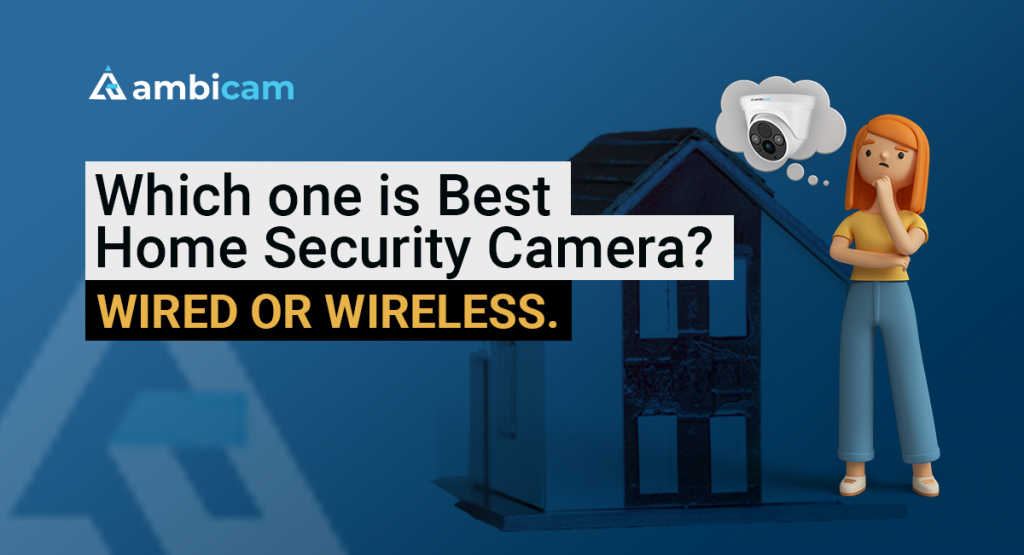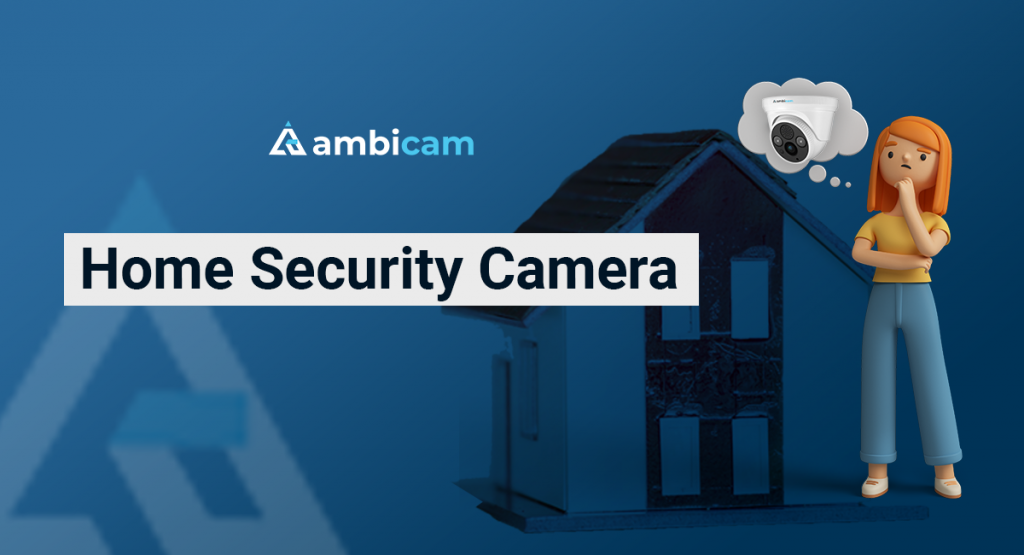
Homes protected against predictable and unexpected security risks are the secret to a peaceful life. We are lucky to be dwelling in a technologically advanced world where smart home security camera are easily accessible to every common man. Modern home security solutions are synonymous with efficiency and reliability. Moreover, with a wide variety of home security camera choices, every household has the liberty to pick a camera made to cater to its specific needs. However, home security cameras are categorized into two major types i.e. Wired Surveillance cameras and Wireless Surveillance Cameras.
Both wired and wireless home security cameras offer you an extra eye to track what is happening in and outside your residence. Smart video monitoring cameras allow you to keep a watch on your loved ones and tangibles distantly in real-time. Since both types of home security cameras can deliver the core functionality of video surveillance solutions, it is quite tricky for the users to choose between a wired or a wireless camera.
Let us make it easier for every reader to understand these two terms:
- Wired camera: Home security cameras that connect to the internet and a source of power by wires or cables.
- Wireless cameras: Home security cameras that connect to the internet by a 4G/3G SIM card technology or Wi-Fi. This type of camera uses a wire to get connected to a power source.
Additional Insights: You may get confused between a wireless and wire-free camera or might end up classifying both as the same. However, it is not the case. While a wireless camera uses a wired power source but Wi-Fi as an internet connection, a wire-free camera is all away from a wired set-up. A wire-free camera is connected over Wi-Fi and operates on batteries for power. It is 100% wire-free.
Moving forward, we will not read all about the differentiating features of wired and wireless cameras to help you make an informed and better purchase decision.
Sneak-peak to Wired and Wireless home security camera
- Wired Camera: Wired home security cameras are hardwired to the internet and a power source. These surveillance cameras are integrated into recording devices that are of two types – DVR (Digital Video Recorder) or NVR ( Network Video Recorder). Both DVR and NVR are used to record 24*7 video footage that can be accessed remotely by responders. DVR systems need coaxial cables for the internet and power connections while NVR systems are connected via Ethernet cables. The latter is a more sophisticated recording system that delivers superior video quality and add-on features such as motion detection and two-way audio communication.
- Wireless Camera: Wireless home security camera operate on Wi-Fi and a wired source of power. These devices broadcast round-the-clock surveillance video and transmit the data over Wi-Fi or cellular data, allowing users to access the video and images anytime from anywhere. Wireless cameras such as Ambicam 4G Cloud CCTV camera can store recorded videos either on the clouds or on local media i.e. in-built micro SD card. Smart wireless cameras boast AI-enabled features including motion detection, face recognition, and a deep-learning-based model to raise real-time security alerts. Akin to wired cameras, wireless cameras also offer the ease of two-way audio function.

Key differentiators of Wired and Wireless home security cameras
1. Wired
Benefits:
- Clear audio-video signals and high-quality video footage
- Sturdy and reliable network
- No power hindrance
- Secure home systems with zero scope of cyber hacking
Downsides:
- A restricted number of cameras can be integrated due to the lack of DVR jacks
- Ruin home interiors with visible wire web, and drilling
- No option of mobility and portability
- Complex and time-consuming installation process
- Long wires run through multiple locations
2. Wireless
Benefits:
- Utmost flexibility of camera placement
- Hassle-free and quick installation without additional set-up
- Easily scalable and mobile
- Can connect to unlimited cameras
- Highly cost-effective as it does not require cables, drilling, or professional assistance in installation
Downsides:
- Restricted range of signals
- Signal hindrance due to concrete partitions, multi-stores
- Other Wi-Fi-enabled systems may cause disturbance
- Highly vulnerable to hacking, and virtual data theft
Considering the functionalities, reliability, resilience, and audio-visual quality, both wired and wireless security cameras have almost the same offerings. What differentiates them are the installation process, network reliability, and portability. Wired cameras demand more effort, time, and cost in terms of installation but deliver robust signals and high data safety. On the other hand, wireless cameras are extremely easy and budget-friendly when it comes to installation. However, they are vulnerable to network failure, cyber attacks, and on-site tampering.
What type of home security camera is best suitable for you?
If we deep dive into the advantages and disadvantages of wired and wireless cameras, we may conclude choices based on the different needs of users. For example, users who reside on a rented property may consider wireless cameras over wired cameras for home security surveillance. Wireless cameras provide flexibility to displace and reposition cameras at the convenience of owners. You can take all your wireless cameras to your new place without disturbing the interiors of either property. Besides, the re-installation of wireless cameras does not involve much time, effort, and money. And those who have a permanent residence may opt for wired cameras for permanent deployment as they don’t switch properties frequently.
Apart from the differentiators between wired and wireless home security camera, protect your residential property, family members, and valuable assets from theft, intrusion, and other uncertainties by leveraging smart video surveillance solutions. All-day and night live video broadcast, secure data storage, smart sensor motion detection, multiple-camera integration and remote access to all live streaming and recordings make these security cameras favorable options.
Still, need expert advice to make a firm decision? You can have a comprehensive discussion with our professional team members to seek more information on wireless and wired security cameras. We at Ambicam strive to deliver impeccable products and services to our customers, making their decision making simple and satisfactory.
